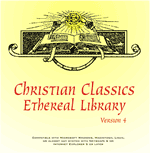#1: "In reality I cannot see where any religion can believe that their scriptures are all accurate, foolproof and complete. The Scriptures aren't supposed to be accurate, foolproof or complete."
Response: At the risk of sounding argumentative (I hope you don't take it as such but...), yes they are supposed to be all three, according to what it says of its own self. Now whether you believe that it is all three accurate, foolproof, and complete is entirely seperate matter, but it most certainly claims that the Scriptures are just that. It's a doctrine called the "Inerrancy and infallibility of Scripture."
The 16th Century Protestant Reformer Martin Luther's anthem phrase was Soli Deo, Soli Scriptura, Soli Fidelis (God Alone, Scripture Alone, Faith Alone). Again, I don't mean to say that you must believe this is true, but merely that this is what Scripture says of itself and what those who followed the teachings of Christ (Christians) have believed from the start (as well as Jews for that matter).
#2: "They [the Scriptures] are written by men (and by men I mean mankind, for those liking to be politically correct!) and so are limited to man's understanding at the time of writing."
Response: What Scripture claims of itself, is that it is "God-breathed," - or in other words, God worked through the men who wrote the Bible to communicate exactly and perfectly what he wanted to communicate. It makes logical sense that this should be done this way as well. I say this, because if you think that a God created us, and created man to be his "special creation" and you believe that God desires that man should maintain a relationship with Him, then it only follows that God would give us his Word in a way that it was NOT corrupted by man. If we believe that God seeks to have a relationship personally with us, He must reveal himself to us. In so doing, we are given Scripture, infallible, and inerrant.
That's the simple explanation anyway.
#3: "Each writing fulfills a need at the time of writing, different times have different needs and so the writings can be contradictory."
Response: That's actually one of the wonders of Scripture. It never contradicts itself once throughout it's entirety. I actually use this point to convey my above thought, about where Scripture comes from. The fact that it ISN'T contradictory, DESPITE having been written over a period of thousands of years, and by over 50 different men, from different walks and stations of life, under different circumstances, it is ABSOLUTELY PHENOMENAL that it never contradicts itself. Throughout, from Genesis to Revelation, the Character of God, the Character of Man, and the story of God redeeming man despite our fallen state, is complete, and perfect, from beginning to end. It's mind-boggling. The only explanation, to me, is that it MUST be truly from God, rather than Man. But that's just my conclusion on the matter.
#4: "The stories have been passed through many generations by word of mouth before actually being written down, each generation presents their own interpretation on the story."
This point is only even possibly true, for the first couple books in the Bible, and particularly Genesis. All the other books are written right in the thick of the story, except where noted in the text. At very least they are written a few years after, but always by the eyewitnesses to the events described (with the exception of the Gospel of Luke, which Luke himself notes at the beginning of the book. He writes that he has compiled his facts from eyewitnesses and so forth).
The only books that were written considerably after the fact are the history books of 1st and 2nd Kings, and 1st and 2nd Chronicles, which gives an exhaustive history of the ancient history of the Nation of Israel. But of course, this is exactly the point of those books.. to give a history.. after the fact.
All the others, are very much contemporary of their events.
#5: "The scriptures are translated from their original languages (unless we are fortunate enough to be able to understand the language in question), each translation adds another layer of interpretation into the stories."
Response: We ARE indeed fortunate enough to be able to understand the entire thing in the original languages. The Old Testament books were written in Hebrew, and the New Testament books were written in Greek. We have full copies of each in the original languages, and I can attest personally that the modern translations of all the books of the Bible are very very accurate and easily understood if read in the English translations. Obviously to read and understand the texts in the original languages adds understanding to some of the details, but it does not change the overall meaning and message of the translations.
The biggest hindrance to interpretation, that I have seen, is not difficulties in switching from the Greek and Hebrew, but instead in the lack of knowledge of Scripture as a whole, by the reader. And when you combine this lack of knowledge, with a lack of knowledge concerning the culture, people, and traditions of the original writers and audience of the books, this is where the biggest errors in interpretation are to be found.
I hope I don't sound too argumentative, because it truly is not my intention to be. I simply wanted to clarify some things of which you may not have been aware.
I would love to go into this conversation a little deeper with someone who has the time and the patience to examine the subject honestly and openly. So by all means, question my conclusions and responses.






No comments:
Post a Comment